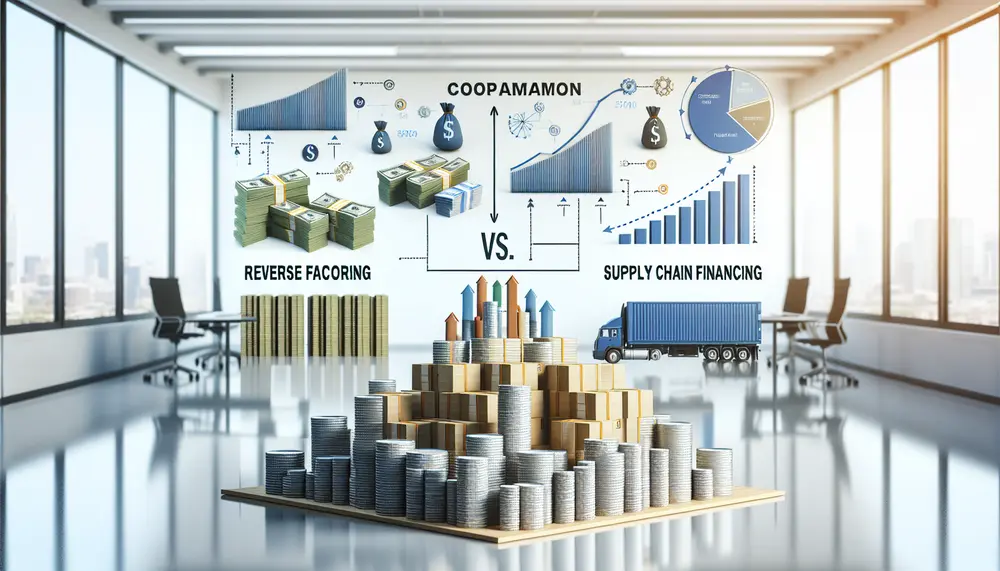Interest
Interest
What Is Interest in Financial Factoring?
Interest represents the cost of borrowing money, and it is a critical concept to grasp when discussing financial factoring. In the realm of factoring, a business sells its invoices to a factor at a discounted rate. The interest in this context is the fee that the factoring company charges for providing immediate cash to the business. This fee compensates the factor for the risk and time value of money, as they wait for the invoice payment from the end customer.
How Is Interest Calculated in Factoring?
The calculation of interest in factoring can vary, but it generally depends on several key factors. These include the amount of the invoice, the creditworthiness of the customers, the duration until the invoice is due, and the agreed-upon rate between the business and the factor. Typically, the interest rate is a percentage of the invoice amount, accruing over the time it takes the customer to pay the invoice.
The Importance of Understanding Interest
For businesses considering factoring as a financing option, understanding interest rates and how they accumulate is vital. It affects the overall cost of factoring and, therefore, the business's profit margins. A lower interest rate means less cost and higher savings, while a higher rate can eat into profits significantly. It is essential to negotiate favorable terms to ensure that factoring remains a beneficial financial strategy.
Examples of Interest in Factoring
Imagine a business that factors a $10,000 invoice with a factor that charges a 5% monthly interest rate. If the customer pays the invoice in 30 days, the business would owe $500 in interest. However, if the customer takes 60 days to pay, the interest would amount to $1,000, doubling the cost for the additional month. Thus, the speed with which customers settle their invoices directly affects the interest expense.
Tips for Managing Interest Costs
Businesses can manage interest costs by choosing the right factoring partner, negotiating better terms, and maintaining good relationships with customers to encourage prompt payments. Awareness of current market rates for factoring services and understanding the fine print in factoring agreements are also keys to controlling interest expenses.
Key Takeaways
The concept of interest in financial factoring can be simple to understand, yet it holds significant weight in the decision-making process for businesses. It is a fee for the liquidity provided by the factor and is influenced by various factors such as invoice amounts and payment terms. A clear understanding of how interest works in factoring will empower businesses to make informed financial decisions and maintain healthy cash flows.
Blog Posts with the term: Interest

Reverse factoring, or supply chain financing, involves a company using a third-party financial institution to pay its suppliers quickly after invoice approval, with the buyer repaying on extended terms. This method enhances operational efficiency and supplier loyalty but requires consideration...

Factoring is a financial transaction where businesses sell their invoices to a factor for immediate cash, providing liquidity and allowing them to focus on core activities. IFRS provides guidelines for reporting these transactions in financial statements, ensuring transparency and consistency...

Reverse factoring is a financial arrangement involving buyers, suppliers, and financial institutions to optimize cash flow, while IFRS are global accounting standards ensuring transparency in financial reporting. Understanding the treatment of reverse factoring under IFRS is crucial for accurate compliance...

Factoring is a financial strategy where businesses sell their invoices to a third party, the factor, for immediate cash flow without incurring debt. It provides not only accelerated funds but also credit management services and can be more flexible than...

Reverse factoring is a buyer-initiated financing solution that leverages the buyer’s credit to offer suppliers faster, lower-cost payments and strengthen supply chain resilience....

Factoring law involves the sale of accounts receivable by a business to a factor for immediate cash, with legal terms like assignment and advance rate being key components. It requires careful consideration of jurisdictional laws, compliance with regulations such as...

Factoring is a financial strategy where businesses sell their invoices to a third party for immediate cash, improving liquidity without incurring new debt. It requires understanding terms like advance rates and fees, choosing the right factoring company with industry expertise,...

Emerging trends in invoice finance include a shift towards flexible, customized solutions, the rise of digital platforms and technology like AI and blockchain, increased focus on sustainability, collaboration with fintech firms, regulatory changes emphasizing transparency and compliance, economic factors such...

Reverse factoring has become crucial in supply chain finance, offering liquidity benefits but posing significant accounting challenges under US GAAP due to classification and disclosure complexities. Recent FASB updates emphasize transparency, requiring detailed disclosures to ensure financial statements reflect the...

Factoring involves selling accounts receivable to a third party at a discount, providing immediate cash flow but incurring costs like service fees and interest rates. Understanding these costs, influenced by factors such as invoice volume and customer creditworthiness, is crucial...

Reverse factoring is a financial tool that optimizes cash flow and supplier relationships but poses complex accounting challenges, particularly in liability classification and disclosure. Its treatment under HGB emphasizes prudence with conservative reclassification practices, while IFRS focuses on derecognition criteria,...

Factoring is a financial transaction where businesses sell their invoices to a factor for immediate cash, without incurring debt. It involves key players—the business selling the invoice, the factoring company (factor), and the debtor—and comes in two forms: recourse and...

Factoring in Germany involves businesses selling their invoices to a third party at a discount, providing immediate cash flow and mitigating credit risk. The German factoring market is well-established, supported by a strong legal framework, and offers benefits like enhanced...

The article compares reverse factoring and supply chain financing, highlighting their differences in initiation, process, flexibility, cost structure, and risk management. It explains that while both methods aim to improve cash flow and strengthen financial relationships within the supply chain,...
